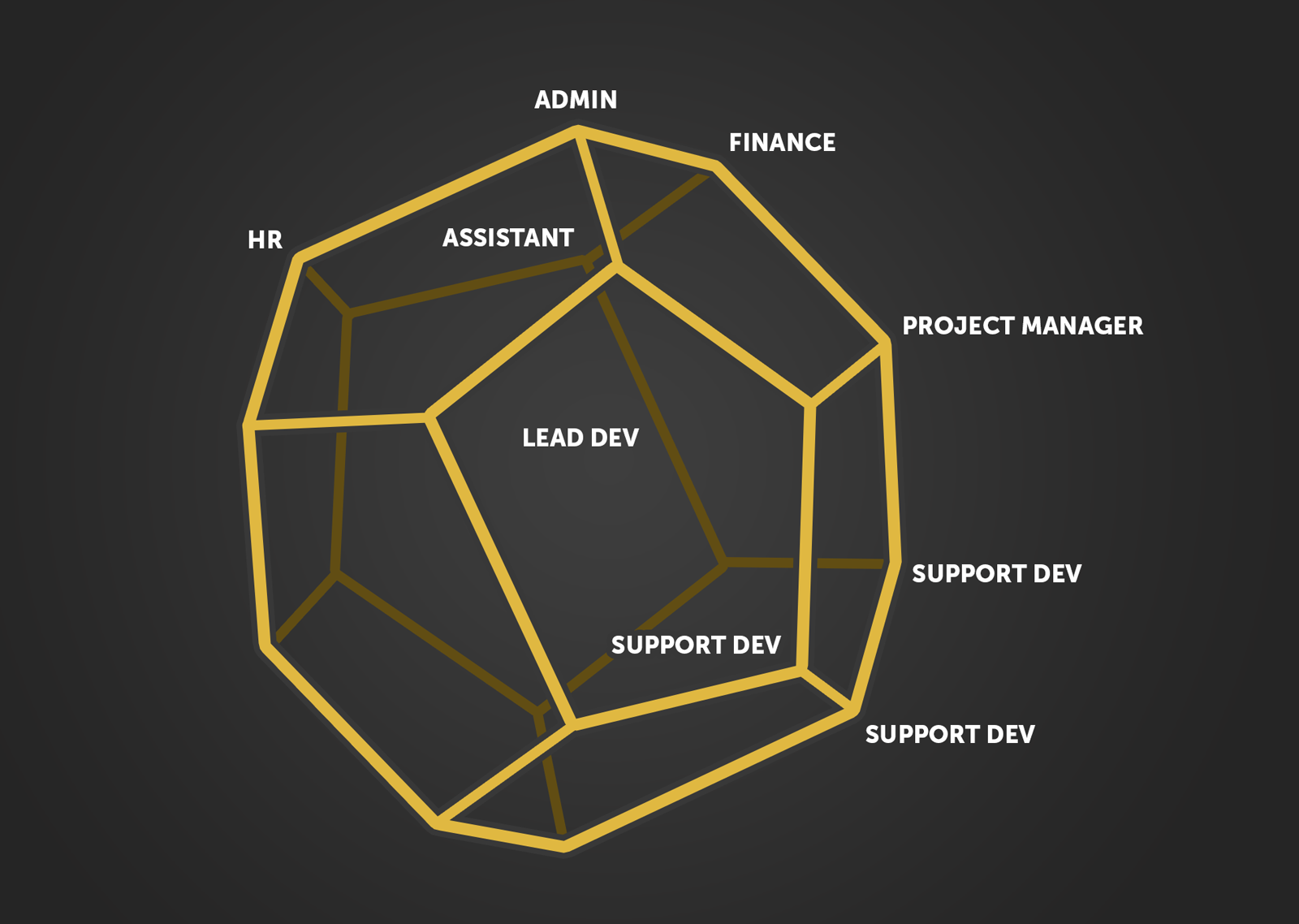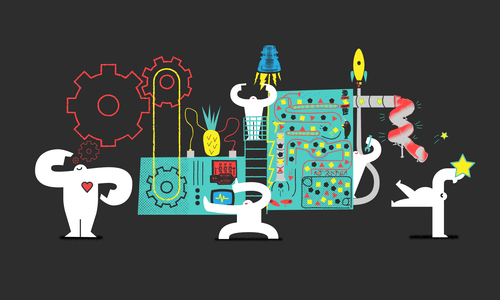
One of the best things about working for this business is the range of ideas and experience that make up the talent pool. Staffed with developers, designers, academics and educators, the Last Call team is prolific in a number of industries—something that benefits us in ways more homogenous organizations aren’t able to leverage. One example of this difference is that Last Call is able to operate under a management philosophy unlike any other development shop we’ve come across, developed by Kelly Albrecht, called Task-Driven Teamwork.
Task-Driven Teamwork was developed as an alternative to the usual top-down corporate hierarchy, as a response to flagging morale and difficulty establishing a chain of command for digital projects, which typically have a number of moving parts that necessitate different kinds of managers. Think of the normal corporate hierarchy, which is similar to the hierarchy of a military unit.
This kind of team structure relies on top-down management, and does not accurately outline the intricacies of horizontal relationships as projects progress. A development team is not all coding and design: business developers and strategists and project managers exist on the continuum, as well, and often times these roles require more nuance of communication than a traditional org chart allows.
With web projects, there are so many moving parts at one time that it’s essential to ensure the task mobility of all stakeholders, as priorities are equally mobile at different stages. For example, during the proposal process, all parties contribute to the development of a strategy and timeframe. During the development phase, however, the lead developer facilitates the momentum of the project while the project manager catalyzes communication. This is a long-winded way of saying that a team must be flexible enough to adjust expectations of each role as a venture progresses.
The precedent set by traditionally-constructed corporate organizations is that there is no concept of decentralized or department-specific responsibilities, and therefore isn’t inherently task-organized. A task-driven team looks more like a sports team than a corporate luncheon: if the goal is the best possible product, the proposed strategy must account for tasks changing during gameplay. Rather than some removed manager making decisions about the strategy, this method allows the task to determine each team member’s role in the project.
Now that you understand the concept of what Task-Driven Teamwork aims to accomplish, check back soon to learn more about how we apply the philosophy at Last Call Media—and how we’ve come to improve the process along the way.




